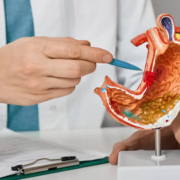Find the Best Gastroenterologist Near Me for Expert Care
Digestive health is essential for overall well-being, yet many people overlook it until symptoms become severe. From persistent stomach pain to frequent heartburn, digestive problems can significantly impact daily life. If you are searching for the best gastroenterologist near me, understanding how to choose the right specialist is crucial. This guide will help you learn about gastroenterology, common digestive issues, diagnostic tests, treatments, and tips for selecting an expert doctor.
What is a Gastroenterologist?
A gastroenterologist is a medical doctor who specializes in the diagnosis and treatment of conditions affecting the digestive system. This includes the esophagus, stomach, intestines, liver, pancreas, and gallbladder. Gastroenterologists receive extensive training in internal medicine and further specialize in gastroenterology to manage complex digestive disorders.
Some common problems they treat include:
- Acid reflux and gastroesophageal reflux disease (GERD)
- Irritable bowel syndrome (IBS)
- Inflammatory bowel disease (IBD), including Crohn’s disease and ulcerative colitis
- Liver diseases such as hepatitis and fatty liver
- Gallstones and pancreas disorders
- Digestive tract cancers
Signs You May Need a Gastroenterologist
Recognizing symptoms early can prevent more serious complications. Some warning signs include:
- Persistent stomach pain or bloating
- Frequent heartburn or acid reflux
- Unexplained weight loss
- Blood in stool or black, tarry stools
- Chronic diarrhea or constipation
- Difficulty swallowing or unexplained nausea
If you experience these symptoms, it is important to consult a qualified gastroenterologist. Searching for the best gastroenterologist near me ensures timely diagnosis and treatment.
Common Diagnostic Tests Performed by Gastroenterologists
Gastroenterologists use a variety of tests to diagnose digestive disorders accurately. These tests help identify the cause of symptoms and guide treatment. Some common diagnostic procedures include:
- Endoscopy
- A thin, flexible tube with a camera is used to examine the esophagus, stomach, and small intestine.
- Helps detect ulcers, inflammation, or tumors.
- Colonoscopy
- A procedure to inspect the large intestine and rectum.
- Important for detecting polyps, colon cancer, or inflammatory bowel disease.
- Ultrasound and CT Scans
- Imaging tests help assess liver, pancreas, and gallbladder health.
- Blood Tests
- Detect infections, liver function, pancreatic disorders, or anemia.
- Breath and Stool Tests
- Help diagnose bacterial overgrowth, infections, and digestive enzyme deficiencies.
Treatment Options in Gastroenterology
Treatment depends on the specific condition, its severity, and overall patient health. Gastroenterologists offer a range of medical, lifestyle, and surgical solutions.
1. Medication
- Acid reducers, antacids, and proton pump inhibitors for GERD.
- Anti-inflammatory drugs for IBS and IBD.
- Antibiotics for infections or bacterial imbalances.
- Enzyme supplements for pancreatic disorders.
2. Dietary and Lifestyle Changes
- High-fiber diet for constipation or diverticulosis.
- Avoiding trigger foods in acid reflux or IBS.
- Maintaining a healthy weight to reduce digestive strain.
- Regular exercise to improve bowel function.
3. Minimally Invasive Procedures
- Endoscopic polyp removal.
- Dilation of strictures in the esophagus or intestines.
- Treatment of bleeding ulcers or varices.
4. Surgery
- Reserved for severe conditions, such as advanced IBD, gallstones, or cancer.
- Modern gastroenterology uses minimally invasive techniques whenever possible.
Tips for Choosing the Best Gastroenterologist Near You
Finding the right gastroenterologist is critical for effective treatment and long-term digestive health. Here are some key tips to consider:
- Check Credentials and Experience
- Look for board certification and specialized training in gastroenterology.
- Experience in treating your specific condition is crucial.
- Read Patient Reviews
- Online reviews can provide insight into a doctor’s approach, communication, and patient satisfaction.
- Evaluate Clinic Facilities
- Well-equipped clinics with advanced diagnostic tools offer more accurate and comfortable care.
- Consider Location and Accessibility
- A conveniently located clinic reduces travel stress, especially for frequent visits.
- Communication and Comfort
- Choose a doctor who listens, explains clearly, and answers all your questions.
- Insurance and Cost Considerations
- Ensure the doctor accepts your insurance plan to reduce financial stress.
Preventive Measures for a Healthy Digestive System
While visiting a gastroenterologist is important for treatment, prevention plays a key role in digestive health. Here are some tips:
- Eat a balanced diet rich in fiber, fruits, and vegetables.
- Stay hydrated by drinking plenty of water.
- Limit processed foods, sugary drinks, and excessive caffeine.
- Exercise regularly to promote healthy bowel movements.
- Avoid smoking and excessive alcohol consumption.
- Schedule regular check-ups, especially if you have a family history of digestive disorders.
Common Misconceptions About Gastroenterology
Many people hesitate to see a gastroenterologist due to misconceptions. Let’s clarify a few:
- “Digestive issues are normal with age.”
- Occasional digestive changes can occur with age, but persistent problems are not normal and require medical evaluation.
- “I can self-treat with over-the-counter medication.”
- Over-the-counter medicines may temporarily relieve symptoms but won’t address underlying conditions.
- “Endoscopic procedures are painful.”
- Most procedures are minimally invasive and performed with sedation, making them safe and comfortable.
How Early Intervention Helps
Early diagnosis and treatment of digestive issues prevent complications such as malnutrition, severe inflammation, or cancer. Regular screenings, especially for colon and liver health, are essential. By finding the best gastroenterologist near me, you ensure that your digestive system is monitored and treated effectively.
Conclusion
Your digestive health directly impacts your quality of life. If you experience persistent digestive symptoms or want preventive care, consulting an expert gastroenterologist is crucial. Dr. Neil Philip Galletly is recognized for his expertise in diagnosing and managing a wide range of digestive disorders. By choosing a qualified specialist, you gain access to accurate diagnostics, personalized treatment plans, and ongoing support for a healthy digestive system. Searching for the best gastroenterologist near me can be your first step toward long-term digestive wellness.

